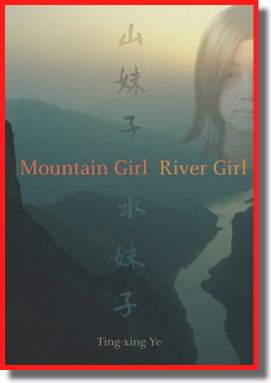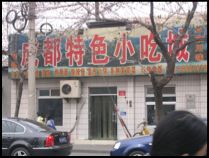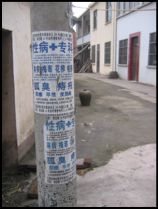A
powerful tale of friendship. An inspiring road story. A shocking
portrait of life in modern China.

Nominated for the 2009 White Pine Readers’ Choice Award
**************************************************************
READ REVIEWS
www.papertigers.org/reviews/Canada/resourceLinks/MountainGirlRiverGirl.html
www.quillandquire.com/books_young/review.cfm?review_id=6084
FAQ
IS THIS BOOK BASED ON A TRUE STORY?
In a way, yes.
While I was in Beijing a few years ago, I met two young women who
were servers in a small neighbourhood restaurant. I could tell from
their accents that they were not from Beijing, and they appeared
less than 18 years old.
I talked to them on and off when they could snatch a minute between
trips to the surrounding tables, balancing plates of hot food in
their hands and on their forearms. I learned that they were indeed
only about 15 years old and that each of them had come from a
different area of China far from Beijing. One was sent away by her
father because he had no use for a female child; the other wanted
to escape the poverty of her village, thinking she could make good
money in the big city. They worked very long hours under the crabby
gaze of their boss.
These two girls inspired my story.
The restaurant where I met the girls.

IS THE BOOK RELATED TO YOUR OWN LIFE?
Not directly. I remember visiting my rural relatives near Wuxi,
where they still live. Like Pan-pan, they are farmers and live a
difficult life.
WHY DID YOU WRITE THE BOOK?
The two girls I met in Beijing remind us that although China is
widely praised for its amazing economic growth there are millions
who still find life difficult--especially if they are women and
live outside major cities.
China’s economic “miracle” is partly based on sweat-shop labour as
described in my novel. Girls of Shui-lian’s and Pan-pan’s age work
six or six and a half days a week, sometimes twelve hours a day,
under archaic conditions for low pay. Coal miners’ jobs are among
the most dangerous in the world. Underneath the glamour of China’s
success is a darker story that I thought ought to be told.
IS THE “FOX SMELL” THEME BASED ON FACT?
As I explained in a note at the end of the novel, hu chou
is a condition all Chinese know about. Below is photo of an
advertisement I saw in Qing Yang, near my cousins’ village. It
advertises a “cure” for hu chou--the kind of relief sought
by Pan-pan’s mother.
[
WHAT WAS YOUR GREATEST CHALLENGE IN WRITING THIS NOVEL?
Mountain Girl, River Girl is told in the third person and
it alternates between each girl’s point of view. Having two points
of view makes a book twice as hard to write, of course, since I had
to develop two main characters, or protagonists, rather than one.
But I hoped this method would give the reader a “double insight”
into the story.